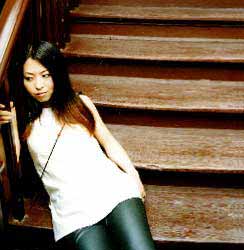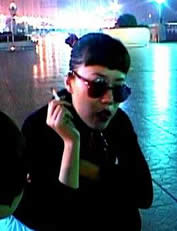| Art Q&A > Modern > links |
|
|
Beauty Writer
'Shanghai Baby' struck a cord with young Chinese urban readers who were looking for a voice for their generation. In 2000, another female writer, Mianmian, claimed that Wei Hui's Shanghai Baby was plagiarized from her novel Sugar. Simultaneously many famous critics and writers became involved in this debate. In the midst of the argument, Wei Hui and Mianmian were given the moniker
This title spread fast and became the hottest commercial brand in the book circle's eyes. Since then, nearly every young female writer has been called a beauty writer. It seems that writers' contribution are not merely their works, but also their body and face, as book people sell the writers' sex appeal along with their books. Hence, "gender consumption" has spread to literature.
The name of beauty writers and beauty literature were criticized by conservative and mainstream figures from theon the very first day. Soon the title of beauty writer became disreputable and turned into a derogatory term with a satire meaning. However, for people to say that word -- beauty writer -- with some kind of
superiority and feeling of self-esteem in itself has transformative
significance. |
||||||
All rights reserved. Reproduction of text for non-commercial purposes is permitted provided that both the source and author are acknowledged and a notifying email is sent to us. |
||||||
 |

